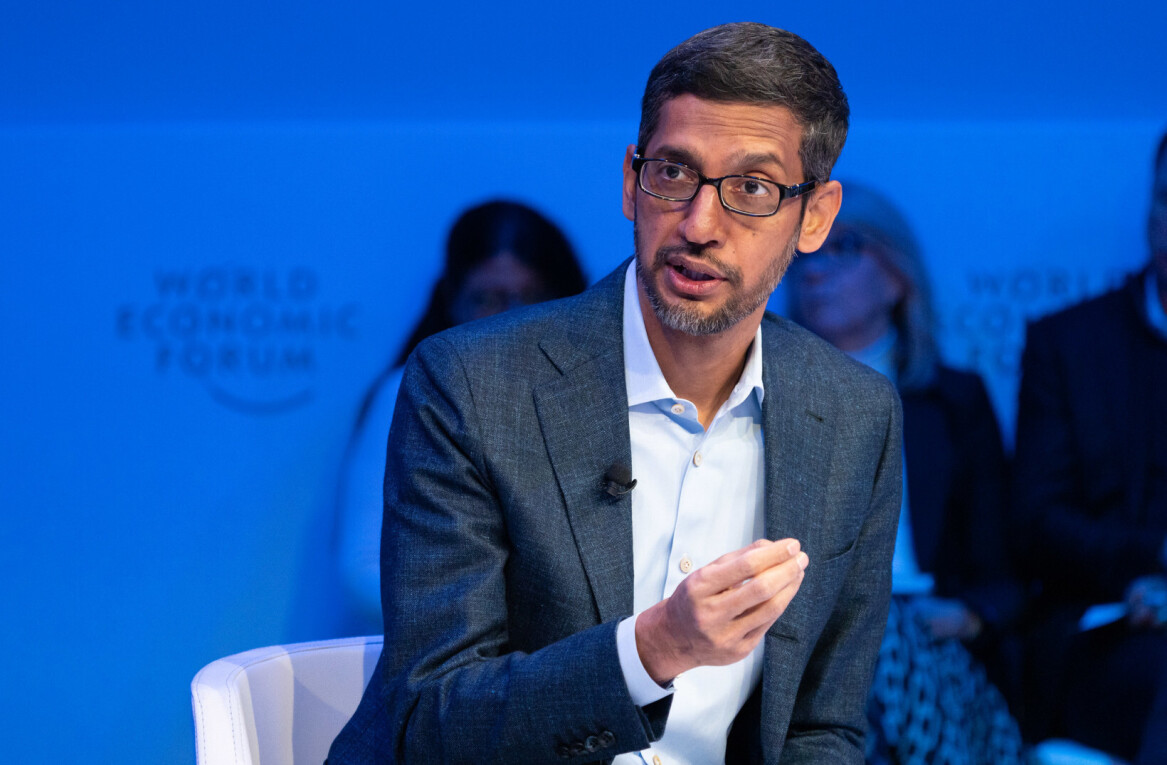
Today at its I/O event, Google announced Compute Engine, a Infrastructure as a Service product to complement its Platform as a Service App Engine offering. You can read details of the product here. In this post, we are going to examine a claim that the company made on stage, and has continued to make on its website: “Get up to 50% more compute for your money [by using Compute Engine] than other leading cloud providers.”
Google explained that hefty discount by claiming that its ten years’ work bringing down the had led to savings that it was now prepared to pass on to developers. In theory, a 50% cut could drive huge amounts of business to the company’s product; such a discount could produce staggering savings for large customers. And, as large customers drive big business, Google’s claim matters. Microsoft has been working to stoke the fires of its Azure product for some time now – this headwind is certainly most unwelcome.
Now, comparing pricing can be a tricky thing, as products rarely line up one to one, thus making absolute price differentials difficult, and thus the calculation of percentages of difference tricky. We’ll do our best. This post is not designed to be the absolute word on this topic, but is instead designed to help highlight the two product’s pricing scheme, and attempt to determine if there is an easily detectable gross difference between the two.
Apples and Apples
We want a similar, and priced product from each company that we can use to stack side by side. We’ll start with a virtual Linux machine, with a single core. Google, you first:
- 1 core, 3.75GB RAM: $0.145 per hour
Now, Google breaks down Compute Engine into what it calls “Google Compute Engine Units,” or GCEUs. This the main unit of their pricing. The above system has 2.75 GECUs, and thus costs $0.053, per GECU/hour. Alright, now, what is a GCEU really? According to Alexandre Bourget, it’s roughly equivalent to an Amazon EC2 Compute Unit. Alright, what does that mean? Here you go [Bold: TNW]:
In order to make it easy for developers to compare CPU capacity between different instance types, we have defined an Amazon EC2 Compute Unit. The amount of CPU that is allocated to a particular instance is expressed in terms of these EC2 Compute Units. We use several benchmarks and tests to manage the consistency and predictability of the performance from an EC2 Compute Unit. One EC2 Compute Unit provides the equivalent CPU capacity of a 1.0-1.2 GHz 2007 Opteron or 2007 Xeon processor.
Well then. We’ll use this later to help us compare Microsoft’s offering to Google’s. Speaking of that, let’s dig into Azure. Microsoft, take it away:
- 1.6GHz CPU, 1.75GB RAM: $0.08 per hour
Now is when this we hit the dirt. Google is essentially stating that its virtual Linux machine is about, and again this is very ‘back of the envelope,’ between 1.6 and 1.33 EC2 units, or around 1.6 and 1.33 GCEUs. Therefore, Microsoft’s product costs between $0.05 and $0.06 per GECU. Right, that’s quite close to Google, which came in at $0.053. Of course, Google is offering much more RAM, making its offering cheaper than it looks. Keep that in mind.
What about at higher numbers of cores? Let’s try a few more:
Google: 8 cores, 30GB RAM, 22 GECUs: $1.16 per hour
Microsoft: 8×1.6GHz CPU, 14GB RAM: $0.64 per hour
Now, we need to break down the number of GECUs that Microsoft is offering to make any sense of that. Back to our formula of a 1.6 GHz Microsoft core being between 1.6 and 1.33 EC2 units, and thus 1.6 and 1.33 GCEUs, we can calculate that Microsoft is offering between 12.8 and 10.64 GECUs. that’s between 11.2 and 11.36 less than Google.
Google calculates that its 8 core offering costs $0.053 per GECU hour. Microsoft is offering, using our ratios, $0.05 and $0.06. Aha, a pattern. Here’s what’s up: Both Microsoft and Google are charging about the same, on a per-GECU scale, as you ‘core up.’ Interesting model, and it perhaps skews past a certain point, but at least in this range, they are holding fast to their ratios.
However, look at the RAM differential: it’s massive. For about the same amount of money per GECU, Google offers oodles more RAM, some 8GB more at the 8 core level, or 57% more than Microsoft. For about the same money.
Truth
So, what to make of Google’s claim? The company said ‘up to 50%,’ and didn’t name Azure itself, so it could be referring to a different IaaS product. Still, compared to Microsoft’s darling, Google is still the better value, offernig more RAM.
And there you have it, more on IaaS pricing than you ever wanted to know.
Top Image Credit: Robert Scoble
Get the TNW newsletter
Get the most important tech news in your inbox each week.




